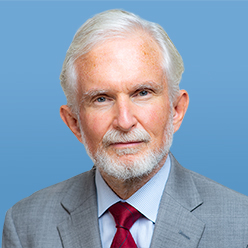The Obama White House is notoriously insular, a quality reflected in its selection process for secretary of state. So far as the country knows, the only two persons that have been seriously considered to be foreign minister of the most important country on earth are Washington insiders who actively campaigned for the job. The qualities desirable—even necessary—to serve the United States well at State have scarcely been mentioned in the controversy over U.N. Ambassador Susan Rice or in the expectation that Massachusetts Sen. John Kerry will be the next secretary.
I served under secretaries of state from William Rogers through Madeleine Albright. When asked to name the best one of that period, my colleagues and I overwhelmingly cite George Shultz. Why?
First, Shultz had personal stature, integrity, and an independent mind. He was a distinguished economist and had served in three cabinet posts before State. In terms of non-elected public service at the national level, Shultz had no peers. In short, President Reagan chose the best. Not all presidents have done so, and one can reasonably ask if President Obama is doing so now.
Second, Shultz enjoyed the trust and confidence of his president, plus widespread respect in the Congress, the media, and the public. There was never any question that Shultz spoke authoritatively for the United States.
Third, Shultz engaged his foreign counterparts and the world in general with firmness and dignity, but without condescension, hectoring, or pettiness. Whether friends or foes, other governments need Washington to speak like a mature great power, not a preacher. Diplomacy is about persuasion. Talking down to people or sermonizing are the least effective modes of diplomacy.
Fourth, Shultz possessed the quality of leadership across the board, including for the institution he headed. Most secretaries of state use (or abuse) the State Department and Foreign Service with little thought for the long-term needs of American diplomacy. Defense secretaries are rightly judged on how well they prepare the uniformed services for future missions; State secretaries often could care less about the institution after their own departure. Shultz and Colin Powell were notable exceptions, devoting real effort to strengthening U.S. capacities to deal with foreign challenges with nonmilitary means.
A really qualified secretary of state is a rare individual. Susan Rice clearly met few of the standards enumerated above, and it is not clear John Kerry fits the bill either.
Four years ago, President Obama named Hillary Clinton to the post largely for domestic political reasons (not the first president to make such a choice, to be sure). Whatever one thinks of Clinton's performance in the job, the president would serve the Republic better this time by a selection beyond politics.
E. Wayne Merry is a former State Department and Pentagon official and senior fellow for Europe and Eurasia at the American Foreign Policy Council in Washington, DC.
Want these sent to your inbox?
Subscribe
Is John Kerry Obama’s Best Choice for Secretary of State?
Related Categories:
Democracy and Governance
